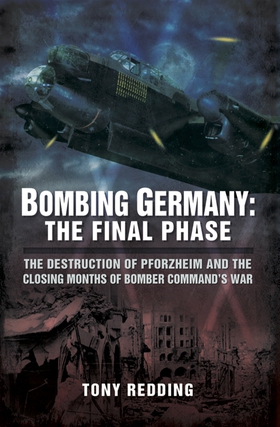
Lägg till önskelistan
Bombing Germany: The Final Phase e-bok
Pris
115 kr
During 1942 and 1943 the striking power of RAF Bomber Command was transformed by the arrival of heavy bombers, advanced navigation and blind bombing systems, and new tactics to concentrate the bombers over the target and swamp the German defences. By October 1944 most of Germany's cities were in ruins, yet the bombing continued to intensify, reaching unprecedented levels in the final seven months of the air campaign. The value of further area raids was questioned during the opening months of ...
E-Bok
115 kr
Pris
Förlag
Pen and Sword
Utgiven
17 Februari 2021
Längd
400 sidor
Genrer
Historia & Arkeologi, Samhälle Och Politik, Fackböcker
Språk
English
Format
epub
Kopieringsskydd
Vattenmärkt
ISBN
9781473850460
During 1942 and 1943 the striking power of RAF Bomber Command was transformed by the arrival of heavy bombers, advanced navigation and blind bombing systems, and new tactics to concentrate the bombers over the target and swamp the German defences. By October 1944 most of Germany's cities were in ruins, yet the bombing continued to intensify, reaching unprecedented levels in the final seven months of the air campaign. The value of further area raids was questioned during the opening months of 1945, yet the Allies destroyed the remaining cities in a bid to hasten the end of the war. The handful of German cities still largely unscathed in early February 1945 included Dresden, which was obliterated on 13 February. Ten days later, the South German city of Pforzheim was destined to suffer the same fate.
This book commemorates the efforts of the aircrew members who risked their lives, consolidating a host of intriguing first-hand accounts. It also considers Pforzheim as a representative community under National Socialist rule. The city's survivors remember the horror of the raid and its aftermath, including eventual occupation by French Colonial troops and, subsequently, American forces. Tony does an admirable job of presenting historical context when considering actions in times of extreme trauma and his narrative offers an intriguing, engaging and poignant evocation of the closing months of Bomber Command's war.




